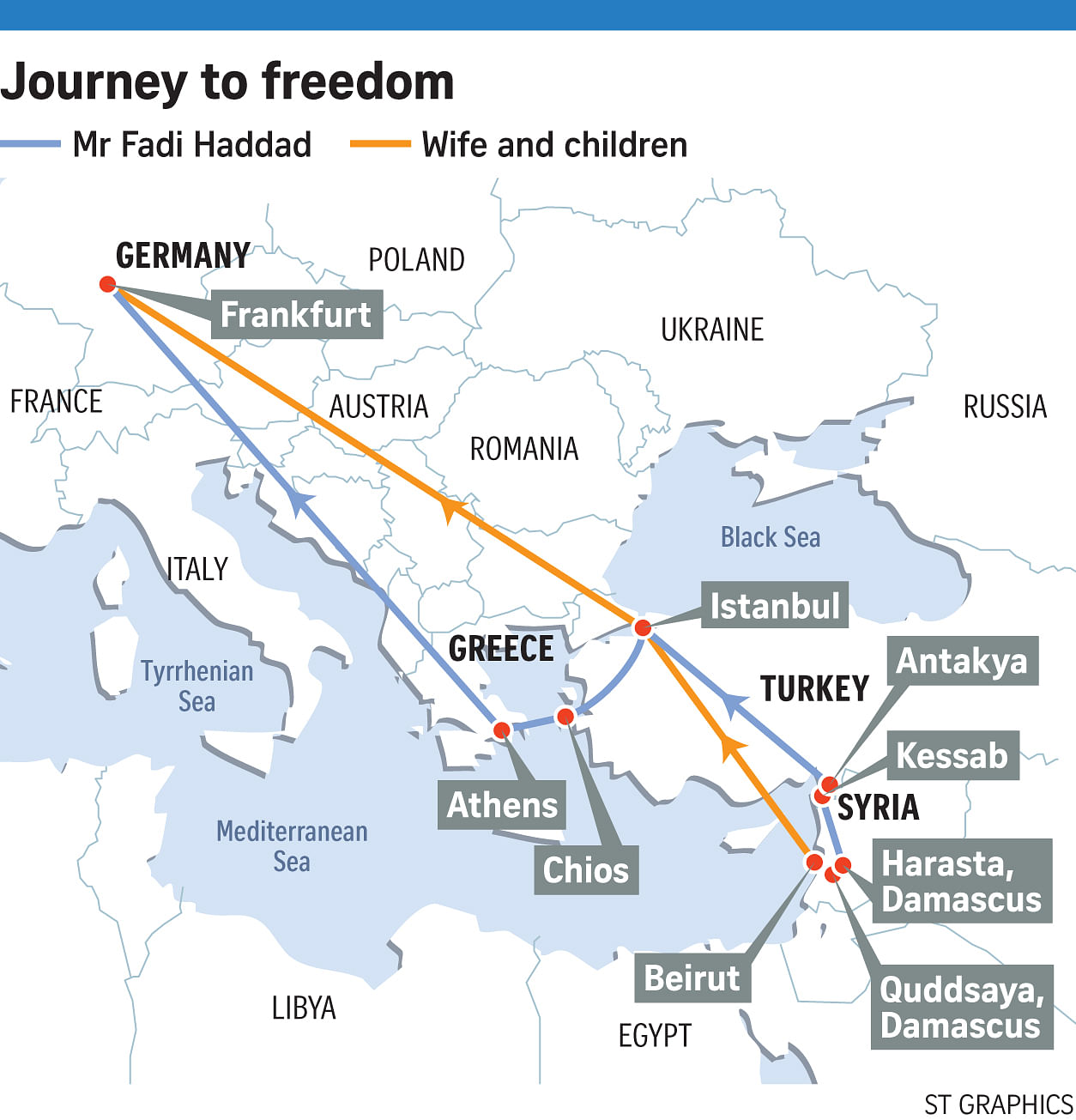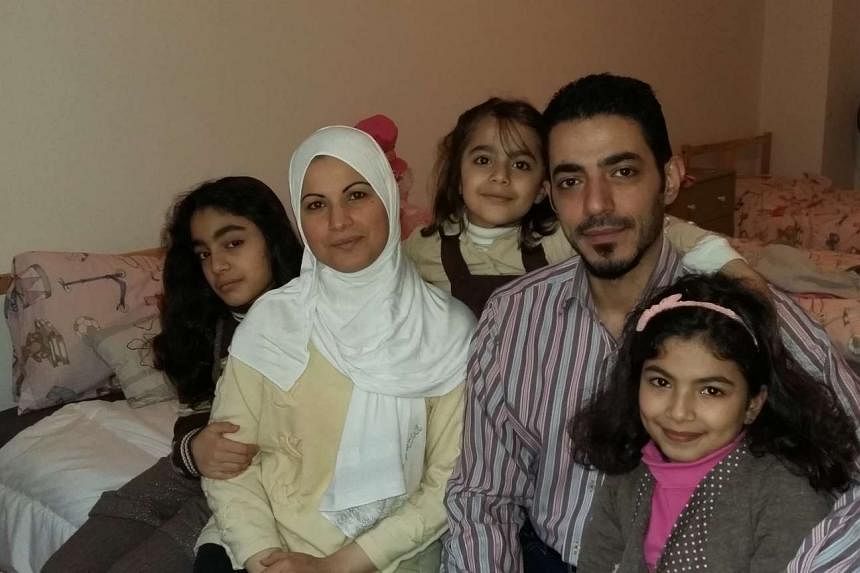Mr Fadi Haddad crawled under barbed wire in Syria's north-western village of Kessab and crossed a forest to reach Turkey, the start of a journey to the edge of despair in the hands of unscrupulous migrant smugglers.
Twice, he had a brush with death - once on a sinking boat and another time when a screwdriver-wielding refugee charged at him in a German transit camp.
"Even now, I think my life is in danger," says Mr Haddad, 39, from his flat, his mournful eyes staring from a gaunt, thinly bearded face as he reflects on his seven attempts by sea, land and air to reach Germany.
Germany expects one million refugees this year, putting pressure on Chancellor Angela Merkel to cut the numbers, partly by working with Turkey to improve the lives of some 2.2 million Syrian refugees there, and plug the migrant path to Europe. For Mr Haddad, crossing into Turkey in October 2012 was the easiest part of his journey.

Turkish border soldiers on patrol saw him from a distance but simply ignored him. He then took a 16-hour bus ride to Istanbul, Turkey's commercial hub. Europe was not his goal then.
In Istanbul, he worked as an "office boy" in a travel agency, delivering letters and cleaning the premises. He slept in the office corridor at first to save money. Mr Haddad said it was hard for him as he had a "luxurious life" in Syria, where he was a travel agency executive manager.
The hardship was compounded after he lost telephone contact with his wife and three daughters, then aged seven, five and two, who lived in a Damascus suburb ringed by Syrian troops. Mr Haddad, who was with the opposition, was captured twice by the government troops, but he escaped by bribing his captors. His family was later found safe and taken by car to Beirut, the capital of neighbouring Lebanon, from where they flew to Istanbul.
He began life anew with his family, moving out of his basement flat where toilet water seeped through the wall, and set up a travel agency.
But with barriers to integration into Turkish society and resentment towards Syrian refugees perceived as poaching jobs for low wages, Mr Haddad set his sights on Europe.
He went to Turkey's south-western port of Izmir, where migrant traffickers blatantly carried out their business in cafes, he said.
He spoke to six of them in an hour. In October 2014, he paid €1,100 (S$1,690) for a spot on a 4m by 2.5m inflatable boat with 39 Syrians. The Greek island of Chios, 27km by air from Cesme in Turkey, was their goal.
But the boat was lost at sea.
"We stayed in the sea for about 21/2 hours. I thought I would die."
Mr Haddad says masked men claiming to be Greek police then took them to a boat flying a Greek flag, transferred them to a rubber boat half the size of their dinghy and left them at sea near Turkey.
They were later rescued by Turkish police when the boat was sinking. Mr Haddad got his money back.
His second attempt cost €3,000 for a boat that landed him and three other Syrians in Chios in 20 minutes. He made his way to the Greek capital of Athens where, after speaking with nearly 30 traffickers, he opted for a €5,000 package to travel by plane to another part of Europe with a fake passport.
But after being caught twice at the airport and with money running out, he opted for the cheapest way - walking. For €2,000, he joined a guided trek which would take the group from Macedonia - through Serbia, Hungary and Austria - to Germany.
But they were nabbed by Macedonian police, who set Mr Haddad free after he paid a bribe.
He returned to Greece and tried to enter Germany by plane again, this time with a fake Greek passport, for €4,000. He landed in Frankfurt on Dec 30 last year.
Unlike in Turkey where he paid upfront, Greece-based smugglers get their money only after a migrant reaches the destination, through a money-transfer system in which a third party holds the funds until the migrant arrives safely. In all, Mr Haddad spent over €10,000 for his two successful attempts, including hotel and food.
But his journey almost ended in death in the crowded Giessen transit camp, 50km north of Frankfurt.
An Albanian attacked him with a screwdriver, either because Mr Haddad received refugee status ahead of others or because he told police about drug use in the camp.
"We struggled. I got hold of the screwdriver," he recalls, still shaken by the close call.
WATCH THE VIDEO
Mr Fadi Haddad's journey from Syria to Germany. http://str.sg/ZKeo

